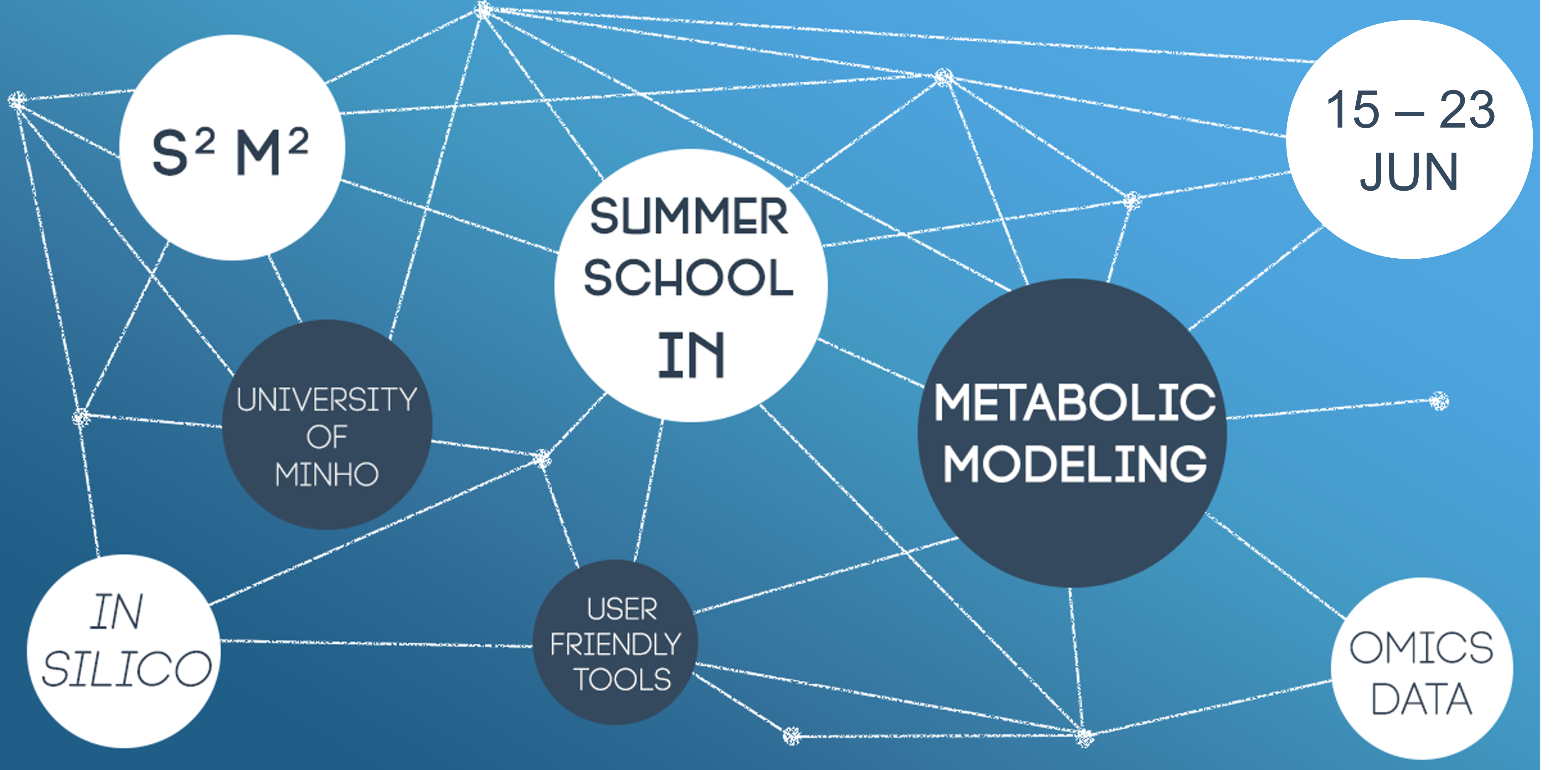
Summer School in Metabolic Modeling 2022
Important Dates:
Early Registration: April 30th, 2022
Regular Registration: May 31st, 2022
Late Registration: June 9th, 2022
Summer School: June 15th-23rd, 2022
Registration:
https://docs.google.com/forms/d/e/1FAIpQLScT9KkTnT4n1xgy-e4IIDYkxCUse9m0c3dOclD6LYedXyQP4g/viewform
Description:
The course will introduce state-of-the-art metabolic modeling covering the full process from model reconstruction to phenotype predictions and analysis. The course will focus on metabolic model reconstruction, phenotype simulation, integration with omics data and strain optimization, including both unicellular microbes and more complex organisms, such as plants and humans. Applications include metabolic engineering, plant and health sciences.
The course will last 8 days (with a free day in the middle). Each day will be divided into a theoretical morning session and practical afternoon sessions, also featuring a social program. The morning lectures will be guided by an expert in the field that will present background information, key concepts, algorithms and computational tools. Afternoon sessions will be dedicated to extensive in silico practical work. Most days will close with a talk reflecting the different applications of metabolic modeling, both in academy and industry. Participants will have some time to prepare their own projects, to be presented in the final session.
The course will focus on the use of both user-friendly software tools and python-based tools (using Jupyter Notebooks). Hence, whilst no programming skills are required, an optional session is included on the first day covering a simple introduction to python. This session may be needed for the ones less familiar with python-based tools.
The course faculty have expertise in metabolic model reconstruction, constrained-based modeling, strain optimization, and omics data integration.
Learning Outcomes:
The course is prepared to offer participants the opportunity to have a hands-on experience of all computational steps to reconstruct a genome-scale metabolic model – from genome to complete and validated metabolic model. Participants will also have a hands-on experience of the main methodologies for flux analysis, phenotype simulation and in silico strain optimization. In addition, this course will also offer advanced topics for combining omics data into metabolic models.
The course will offer the participants an all-around experience to the main computational tools and methods used in metabolic modeling.
Course Main Topics:
- Genome annotation and reconstruction of metabolic models using merlin.
- Flux analysis, phenotype simulation and strain optimization using OptFlux, COBRApy and MEWpy.
- Analysis and integration of omics data and into genome-scale metabolic models, using Troppo.
- Novel modeling paradigms including protein allocation constraints, transcription/ translation and regulatory interactions, using MEWpy.
- (Optional) A hands-on introduction to Python and Jupyter Notebooks covering the main skills needed for the remaining of the course.
Attendance:
The course will be held at the Campus of Gualtar, University of Minho, Braga (Portugal). Although we strongly suggest in-person participation, online attendance will also be available.
Target Audience:
The course is tailored for PhD students, post-docs, researchers and other professionals in the industry that may be interested in metabolic modelling. The audience is limited to 24 in total.
Organizing Committee:
Marta Sampaio
Eugénio Ferreira
Scientific Coordination:
Oscar Dias
Isabel Rocha
Miguel Rocha
Vítor Pereira
Program and additional information:
https://s2m2.bio.di.uminho.pt/
Supported by:
University of Minho
Centro de Engenharia Biológica (CEB)
NEBiUM
BioData.pt
Universidade do Minho
Campus Gualter, Rua da Universidade
4710-057 Braga
Portugal





